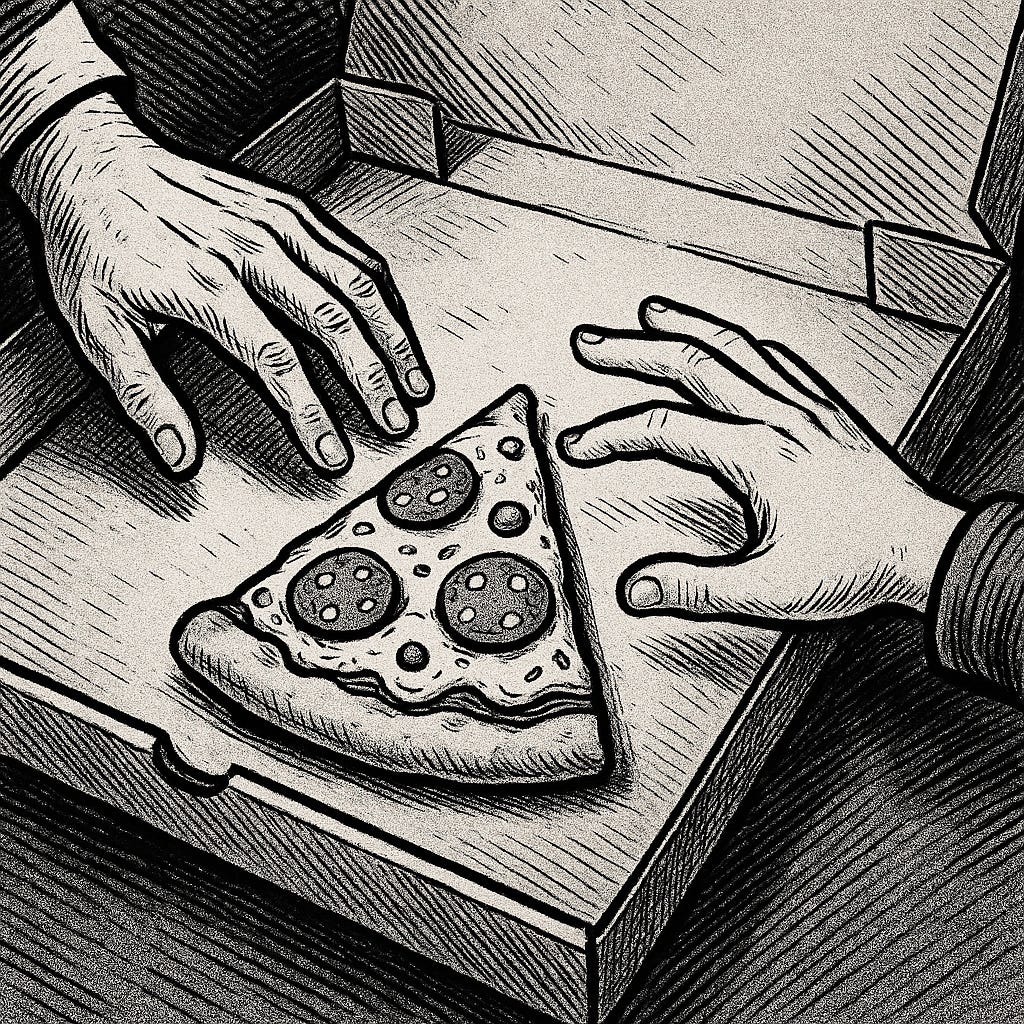Is capitalism a good system?
If your heartbeat speeds up just a little whenever anyone brings up a question like this in casual conversation, you are not alone. Talking about money and economic systems is one of those universal topical taboos.
Spoiler: I’m not going to answer the question, at least not directly, but I might equip you to better answer it.
One big issue is the widespread perception that money equals status. If you don’t have much, you might feel self-conscious, like everyone will judge you as somehow being lesser than. On the flip side, if you have relative wealth, you might not want to make other people feel self-conscious, or you might not want to explain how the grass isn’t necessarily greener from your perspective.
A big part of the problem is language. It’s the classic case of arguing over definitions, where people are talking at cross purposes: one thinks they know exactly what the other means and vice versa, but both are wrong.
Before we say whether or not an economic system (or anything, really) is good or bad, we have to define what good and bad actually mean.
No, really! This isn’t me trying to redefine what the definition of is is, but we need to be careful to consider what we’re really talking about.
On the one hand, you could be asking about whether or not everyone gets a roughly equal slice of the pie we’re all working on—and all trying to eat. Scratch that—let’s make it a pizza instead of a pie (although technically, pizza is a type of pie). Clearly, this happens in real life—ever seen two brothers fight over who gets the bigger slice of pizza? Ever seen two brothers eating pizza ever, anywhere?
Even within this idea—the right size of slice—then it comes down to which brother worked harder, or maybe to who is hungrier. The older brother deserves the bigger slice more because he did the dishes this morning while his younger brother slept in, but the younger brother needs the bigger slice because he’s going through a growth spurt, so he’s always hungry.
So, there’s the idea of making sure everyone gets the right size.
On the other hand, what if you could just make the entire pizza bigger? Maybe the way you’re making the pizza is incredibly wasteful—suppose you could use less flour, so your up-front cost was lower. Maybe you could also find more cheese in the fridge if you look around a little bit, or maybe the two brothers figure out a better baking time, so they don’t end up throwing those little burnt bits away.
This idea could allow everyone to get a bigger piece without having to fight over it, since the whole pie got bigger. Theoretically, anyway.
This tension isn’t just at the heart of capitalism. It’s central to all economic systems, and there can never be a completely satisfactory answer that will make all parties happy. Instead, there needs to be a balance between these two forces.
Making the pie bigger is called efficiency, and making sure the slices are the right size is called equity.
If you see discomfort around economics, part of the reason is that there’s a fundamental tension there you can’t completely escape.




"...let’s make it a pizza instead of a pie (although technically, pizza is a type of pie)...."
When it first became popular in America after World War II, it actually was called "pizza pie". But I think they stopped calling it that so it wouldn't be confused with a fruit or meat pie.
Ideally, according to its advocates (Smith, Keynes, Vebler, Weber, etc.), capitalism is supposed to ensure that individuals can operate profitable businesses that serve collective needs; whereas, according to ITS advocates (Marx, Engels, Lenin etc.), communism is supposed to be about individuals sharing the wealth of a nation on just terms. However, somewhere along the way, both of these basic definitions got subverted and perverted...
From now on, whenever Nathan and Nia start arguing over something for the seventeenth time in one day, I'll simply send them your post to read. I'm sure it'll settle any arguments efficiently and... equitably.